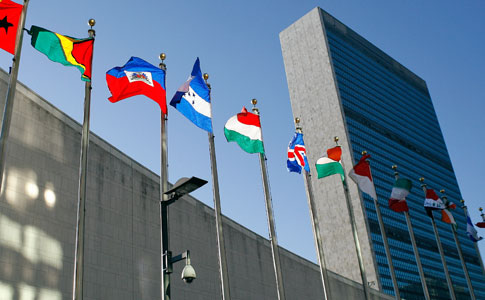NOTE: This post was written by Emily Fox, a first-year graduate student. Emily’s specializations are Foreign Policy Analysis and the Middle East. Emily has interned at the Chautauqua Institution and has worked with several NGOs in Uganda. Emily has worked as a photojournalist and has been published in the New York Times, US News and World Report, The Chautauquan Daily, The Cleveland Plain Dealer, and The Pittsburgh Post-Gazette. She has contributed to The Appalachian Culture Project, The Family Enrichment Center, Ensigo, and Abaana.
A draft of the Office of Internal Oversight Services’ Evaluation Report, which assesses sexual exploitation and abuse within UN Peacekeeping Operations, has been released.
The UN has increased efforts to define, report, and punish sexual misconduct since the release of the Zeid Report in 2005. The Zeid report led the way for the creation of a new Conduct and Discipline Unit; a three-pronged strategy of prevention, enforcement, and remedial action; and an overhaul of the UN’s administrative justice system.
According to a February report, “Reducing Sexual Exploitation and Abuse in UN Peacekeeping,” by Jenna Stern of Stimson, “there has been a general downward trend in allegations of SEA since the implementation of many Zeid Report recommendations, even though the number of total personnel serving in peacekeeping operations has increased within the last 10 years.”
While efforts have been made to reduce the rate of sexual abuse and exploitation within UN Peacekeeping missions, the OIOS report shows that these incidents are still worryingly common. OIOS reported 480 allegations of sexual exploitation and abuse between 2008 and 2013. Abuse was especially prevalent in missions to the Democratic Republic of Congo, Liberia, Haiti, and South Sudan. Minors accounted for one-third of the accusations.
The report described troops paying for sex through cash and commodities, as well as incidents of rape and coercion. Enforcement remained a problem as well. The report stated that enforcement involved “multiple actors with distributed responsibilities,” and described lengthy processes where delays are commonplace and implementation standards lacked clarity. OIOS also voiced concerns about variation in the sanctions imposed on violators, ambiguity on consensual sex policies, and the quality of assistance offered to victims.
The UN has faced many hurdles in reducing incidents of sexual abuse and exploitation. Stern’s February report explores these at length, highlighting reluctance of victims to come forward, the variations of cultural attitudes toward sexual conduct within peacekeeping troops, and issues of enforcement. Local taboos can have a profound affect on victims’ willingness to report incidents of sexual exploitation and abuse. Victims of rape or sexual abuse may be ostracized or abandoned by families or spouses; they may fear retaliation from armed perpetrators; and they may face economic incentives for keeping quiet.
UN peacekeeping troops come from a variety of backgrounds, and often from countries where the age of consent is lower than the UN’s standard of 18 years old. In some troop contributing countries (including Bangladesh, the country that contributes the most peacekeeping personnel) prostitution is legal. While consensual sex with members of the local population is described as “strongly discouraged,” policies remain unclear and can create confusion for troops.
The most common punishment for troops who violate sexual exploitation and abuse standards is dismissal from service and repatriation. UN peacekeepers are often considered immune from punishment in their host countries, and punishment in home countries often varies based on local policies and across positions.
OIOS has made six recommendations for the UN based on its findings. These recommendations centered on creating a comprehensive strategy to provide assistance and support to victims of sexual exploitation and abuse; to analyze the differences in discipline across troops; to strengthen follow up between troop contributing countries and police contributing troops; report on whether or not commanders are fulfilling their responsibilities with regard to sexual exploitation and abuse; and clarify the organization’s position on policies regarding sexual exploitation and abuse, especially in regards to policies of consensual sex between troops and local UN beneficiaries.
On June 16th, the UN’s High-Level Independent Panel on Peace Operations, a panel designated by Ban Ki-Moon to review the current state of UN peace operations, issued key recommendations for the future of UN peacekeeping. Among the panel’s recommendations were points specifically addressing sexual misconduct, many of which echoed the recommendations proposed by OIOS. “Immunity must not mean impunity,” the recommendations stated. “Immunity was never intended and does not apply to provide immunity from prosecution to UN personnel alleged to have committed sexual exploitation and abuse.” The panel called for increased transparency in regards to disciplinary actions taken by troop contributing countries, six-month deadlines to complete investigations of sexual exploitation and abuse allegations, and the creation of an “effective and adequately resourced victim assistance program.”
